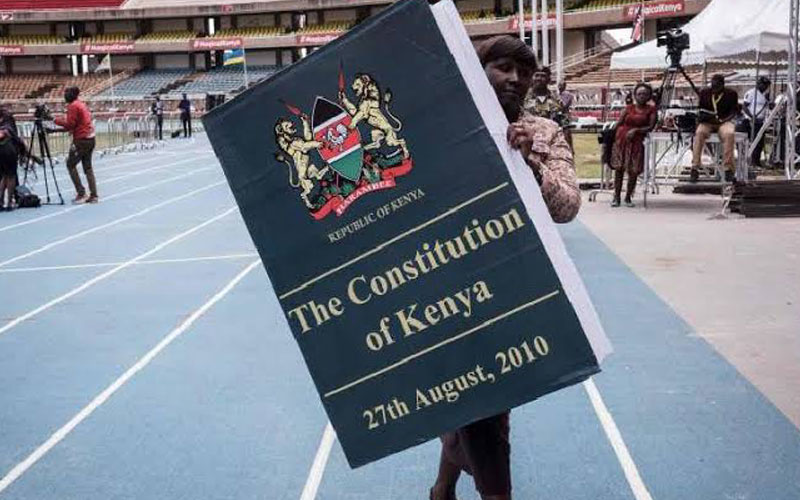Echoes from the past: Attempts to expand Executive are not new
By Christopher Owuor, August 20, 2021Gakuu Mathenge
Whichever way the ruling on the Constitution of Kenya (Amendment) Bill 2020 goes, it is not the first attempt at expansion of the Executive and dispersal of presidential powers.
The proposal to expand the Executive and redistribute powers currently vested in the presidency among new offices has been part of Kenya public discourse for over two decades.
In 1997, then Democratic Party of Kenya candidate Mwai Kibaki, was the first major political party leader to pledge an expanded Executive and a government of national unity comprising more than one parliamentary party in his presidential campaign manifesto.
The manifesto promised to form a government of national unity comprising a president, two vice presidents, a prime minister and four deputy prime ministers.
“To undertake radical reforms to help Kenya prepare for politics of the third Millennium.
We believe that participatory management of public affairs produces the greatest good for the largest number of citizens of Kenya,” Kibaki said.
Kibaki lost the presidential race of that year to incumbent Daniel arap Moi.
The next attempt at real major power sharing was under the National Rainbow Coalition (Narc) that won the 2002 General Election.
However, the memorandum of understanding between the coalition partners that would have operationalised the power sharing structure would be disregarded after the polls.
The third attempt to institutionalise power sharing was in the various provisions of the Bomas Draft but which would later be adulterated in the Kilifi Draft which was rejected in the 2005 referendum.
The closest Kenya came to real sharing of executive power was during the post-2007 election grand coalition of President Kibaki and Raila as Prime Minister.
The constitution was amended to create the office of prime minister and two deputy prime ministers.
The latest attempt to institutionalise power sharing, and which is the genesis of the current BBI project, was authored in 2016 by The National Alliance (TNA) wing of the Jubilee Coalition.
For the second time, a major political party formation authored a document to justify expansion of the executive.
The document, which was to form a central plank of Uhuru’s re-election campaign for a second term in 2017, proposed to make constitutional changes to create the office of the prime minister and two deputy prime ministers to share powers vested in the presidency.
“For example, Jubilee can promise a more inclusive Presidency. This can be achieved by re-structuring the Presidency to include 2 or 3 Deputies and a Prime Minister.
The more the positions, the more the Government is likely to be representative and can genuinely promise inclusivity, which people are clamoring for,” said the TNA strategy paper.
To effect the constitutional amendments necessary to achieve this, the strategy paper proposed Jubilee leadership to reach out to the then opposition Cord coalition to negotiate the proposed changes to alter the shape of the executive and persuade Cord MPs to back the initiative in Parliament
“Government can involve and agree with CORD on the possibility of amending the Constitution to effect the proposed structure of the presidency,” the paper said.
The insistence by Cord for an overhaul of the Independent Electoral and Boundaries Commission (IEBC) ahead of 2017 elections eventually sunk the deal.
However, the rationale behind the power sharing proposals seem to have remained on the minds of both Uhuru and Raila, who have since assumed lead roles in championing the BBI.
Many perception issues the strategy paper sought to address then sounded familiar to concerns the BBI proposal sought to mitigate.
The speed at which the historic Handshake between President Kenyatta and Raila was set up and BBI initiative rolled out with unequivocal backing from the two only points to the reality both remained fully seized of the cohesion and inclusivity concerns isolated by the TNA strategy paper in 2016.
Which implies whichever way the court rules, there is no shortage of BBI disciples to keep agitating for its ideals, top among them, sharing of executive powers.
